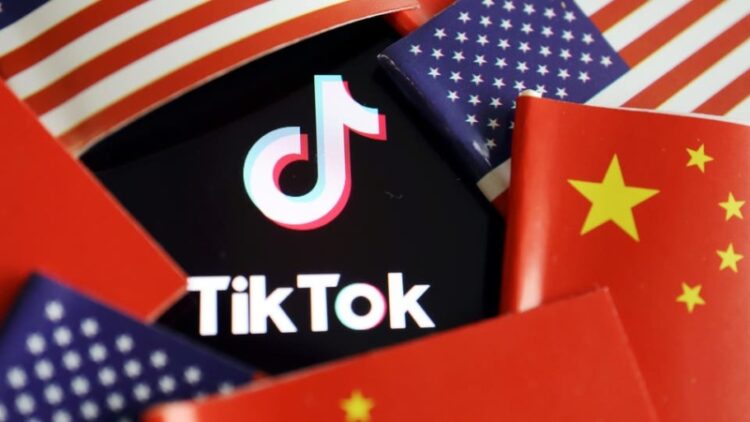Publisher: Maaal International Media Company
License: 465734
Wall Street Journal: Banning TikTok threatens to evaporate billions of dollars from the US economy
اقرأ المزيد
The American newspaper, The Wall Street Journal, said that the disappearance of the TikTok application threatens to take millions of dollars from the US economy, and remove an important platform used by millions of American companies and social media entrepreneurs to communicate with customers.
The US Supreme Court upheld a law banning TikTok in the United States, which could deprive 170 million users of the application. In its decision, the court ruled that the law does not violate freedom of expression rights, and that the US government expressed legitimate national security concerns about the application being owned by a Chinese company. The ban is expected to come into effect on January 19, one day before Donald Trump is inaugurated as the new US president. The newspaper pointed out that this step, although it does not affect the US economy in general, would limit a large sub-economy that has emerged under the popular application used by about 170 million Americans, adding that it is difficult to determine an exact figure for TikTok’s impact on the US economy, although the company has promoted a figure of more than $20 billion annually.
The newspaper reported that supporters of the ban say that any harm from banning the application is less important than the national security risks, represented by the possibility of the application being used by the Chinese government for propaganda or spying on Americans, which are actions that the “TikTok” application said it would not allow.
According to the newspaper, officials of the outgoing administration of President Joe Biden indicated that they do not intend to impose the ban on his last day in office, and that it will be the responsibility of the White House led by Trump, but this was not enough to give TikTok comfort.
The newspaper revealed that “TikTok” publicly pressured the US administration late Friday to obtain more assurances that it would not implement the law. “We’ve already gone to extraordinary lengths to communicate our position,” a White House official said.
The newspaper explained that the most direct impact of the ban would be on ByteDance, TikTok’s parent company, its employees and shareholders, including major American backers such as BlackRock, General Atlantic and Susquehanna International Group.
The company did not disclose TikTok’s value, although the United States is the most profitable market for the app, and as of 2023, TikTok had about 7,000 employees in the United States.
According to the newspaper, TikTok makes money by selling ads and taking a percentage of sales made by content creators and small businesses directly on its platform through individual company profiles, the TikTok store or the For You page in the app.
The newspaper quoted Brett House, an economics professor at Columbia Business School, as saying that advertisers are likely to reallocate their spending elsewhere, including Instagram, and people’s attention will shift to other social media.
“After a few months, the impact on the broader economy is supposed to be minimal or nonexistent,” he said, although recovery may take longer for content creators and small businesses that rely heavily on TikTok.
The newspaper pointed out that the app generates more than $8 billion in annual advertising revenue, according to certain estimates, and has helped fuel demand for talent, video editors, and others who support the work of content creators and small businesses on it.
The newspaper pointed to a report issued in March 2024, commissioned by TikTok and written by the consulting firm Oxford Economics, that small businesses on the TikTok app contributed $24.2 billion to the US economy during 2023, the newspaper noted, noting that the number cannot be independently verified.
The newspaper pointed out that the full impact of the TikTok app includes not only the money that content creators and small businesses earn from it directly, but also indirect financial benefits in the form of increased traffic to the website or the number of people entering stores, brand sponsorships, and others.
The newspaper also quoted Erik Brynjolfsson, head of the Digital Economy Lab at Stanford University, as saying that many Americans will also lose an important source of free entertainment, which is a form of economic value in itself.









